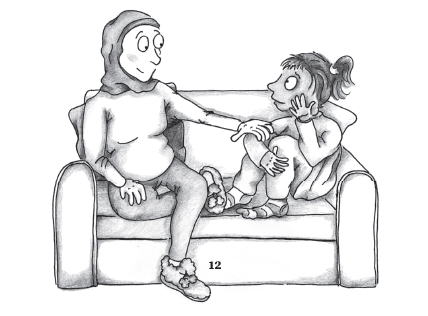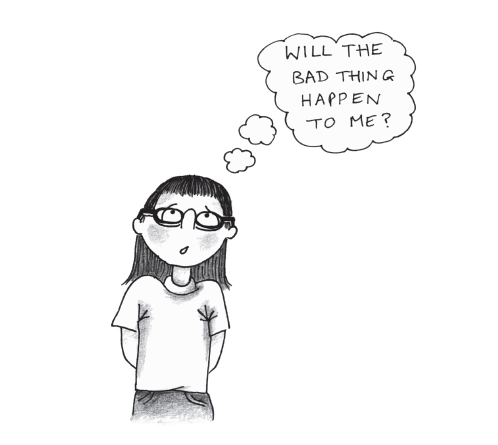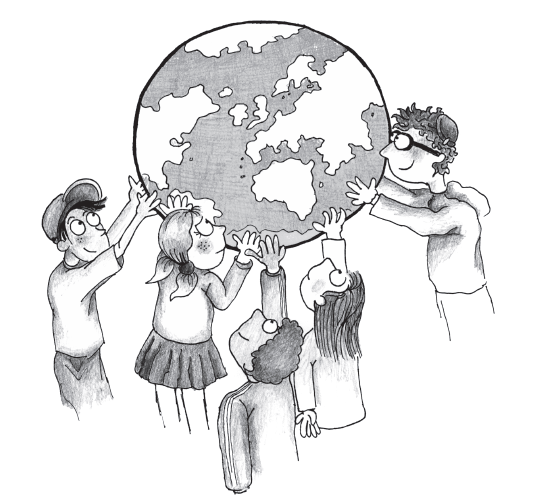Dawn Huebner, PhD
[Note to Parents: Please feel free to use this script in whole or in part when talking to children about the Coronavirus. A template for having conversations like this – about Coronavirus or any large-scale event – can be found in my book, Something Bad Happened: A Kid’s Guide to Coping with Events in the News. Brief excerpts from the book are in quotes. Notes to you are in brackets.]

You might say:
Have you heard of something called the Coronavirus?
What have you heard? [Give your child/ren time to respond to this and all subsequent questions. You want to make this a conversation, not a lecture. And certainly, you need to know the misconceptions they carry so you can correct them.]
I want to tell you about the virus, and about what we are doing – and people all around the world are doing – to keep everyone safe.
You are safe. But this virus is a big deal, and you’ve probably heard people talking about it, so I want us to talk about it, too. I want you to know what is happening. I want to answer any questions you might have. And most of all, I want you to know that we’re okay, and we’ll get through this, even though things are going to be really different for a while.
“When we hear about something bad that happened, our brains go into High Alert.” (page 18)
“Brains in High Alert focus on the possibility of danger, making us feel unsafe. But here’s the thing: sometimes our brains go into High Alert by mistake.” (page 18)
If you are feeling nervous about the Coronavirus, that’s okay. Your brain is doing exactly what it is supposed to do.
We all have a part of our brain called the amygdala whose job it is to protect us. The amygdala is always on the lookout for things that might hurt us, and when it finds out about one of those things, it sets off an alarm to warn us. This amygdala-alarm makes us feel scared. That’s exactly what’s supposed to happen. It’s our brain’s way of getting us to pay attention.
But sometimes the amygdala-alarm goes off when we aren’t actually in danger. It’s like the smoke detector in our kitchen. It goes off when it senses smoke – without knowing if the smoke is coming from a fire, which would be a major problem, or a piece of overdone toast, which is not such a big deal.
Your amygdala alarm probably went off when it heard about Coronavirus – because Coronavirus is new, and it sounds scary, and a lot of people are talking about it. So, now we need to figure out: is there a fire (something that is likely to be really harmful for our family?) or is it overdone toast (something we need to know about, but that isn’t a major danger for us)?
I can tell you that for us, right now, this is not a fire. There are things we need to do, and we’ll talk about those things in a minute, but I want you to know that we are safe.
For some people, this is a fire. We care about those people, too, so we’re going to be doing all that we can to keep everyone safe – not just us, but everyone.

[If your child is panicking, please pause here to teach them a brain-calming activity. A panicky child is not going to be able to take in anything else you might say, so you need to help them calm down, first. You will find specific mindfulness activities geared toward children in Something Bad Happened. Or, check out Dr. Chris Willard’s books, which are particularly appealing and user-friendly. There are also abundant mindfulness resources online.]
“[One] way to quiet false alarms is to get accurate information about the bad thing that happened.” (page 30)
Coronavirus is actually something we’ve known about for a long time. You’ve had a Coronavirus, and so have I, and just about everyone we know. Coronavirus is what causes us to get most of the colds we get, and the flu. Mostly when we get a Coronavirus, we feel lousy for a while and then we feel better.
A few months ago, doctors started noticing a new version of Coronavirus called Covid-19. Have you heard of that?
Because Covid-19 is new, there are no vaccines to protect us from it. When people started getting it a few months ago, no one knew how easily it would spread or how serious it would be for some people, so it took a while for all of us to start doing the right things.
Most people who get Covid-19 get it in a mild way – like a bad cold. They cough, and have a fever, and don’t feel well, and then, after a while, they feel better. But for people who are old, or who are already sick in some way, Covid-19 can be more serious.
We care about the people in our family and we want them to stay healthy. But we also care about the people in our town, and in our state, and all around our country. We want those people – even the people we don’t know – to stay well, too. So, all of us are working together to do what we need to do to keep everyone safe.
Some of these things are easy, like washing our hands more, and making sure we get them really clean. Or wiping down the things we touch every day. We’re also trying to remember to sneeze or cough into our elbows. These things are inconvenient, but they’re not really hard for us to do.
Other things are harder, though. We’re staying home, right? And we’ve given up lots of things we used to be able to do. [Insert plans you’ve had to cancel, activities your child might have been looking forward to that they aren’t going to be able to do.] We’ve decided that it’s important enough to keep everyone safe that we’re willing to do these big things, even though it’s hard. If enough people stay home, Covid-19 won’t be able to spread as far or make as many people sick. But it’s disappointing to miss out on things we’ve been looking forward to. It might make you feel sad or mad.
Is there anything that’s gotten cancelled that you are sad or mad about?
I get it. It’s hard when fun things are cancelled, even when there’s an important reason for it.
When I feel sad, I try to remember that there are fun things we can do at home, too, and that by staying home, we are helping people everywhere. Knowing that I am helping other people makes me feel a little better.
Let’s think about what you can do when you feel sad or mad about the way things have changed.
Even though our schedule is really different now, “it’s important to keep doing the things that keep us healthy and strong, and that make us who we are.” (page 70)
In the next few days, we’ll talk about how to keep things interesting and fun even though there’s no school, or [insert the other activities your child will no longer be doing – playdates, soccer, guitar lessons, etc.] [Check Dawn Huebner, PhD Self-Help for Parents and Kids on Facebook for tips on how to structure time at home in ways that are do-able, meaningful and fun.]
“There’s one final thing to think about.” (page 74)
There are people all around the world just like us. People who have heard about the Coronavirus and are deciding to do something to make this sad and scary time better. Let’s be helpers like that. Let’s think about what we can do – not only for ourselves but for everyone – to show that we care and to make things better.
[This would be a wonderful time to talk about what your family can do. Might your child/ren draw thank-you pictures for healthcare workers? Can you connect via social media with an elderly neighbor? Can you deliver food to a local food pantry, or make a donation to a struggling non-profit? Think about the people in your community likely to be hit hard financially by this pandemic – childcare workers, local artists, restaurant employees, people already living paycheck to paycheck. Is there something you and your child/ren can do to express warmth and concern?
I’m so proud of you!
“Your words, your efforts, your actions matter. You [are helping] to heal the world.” (page 78)
